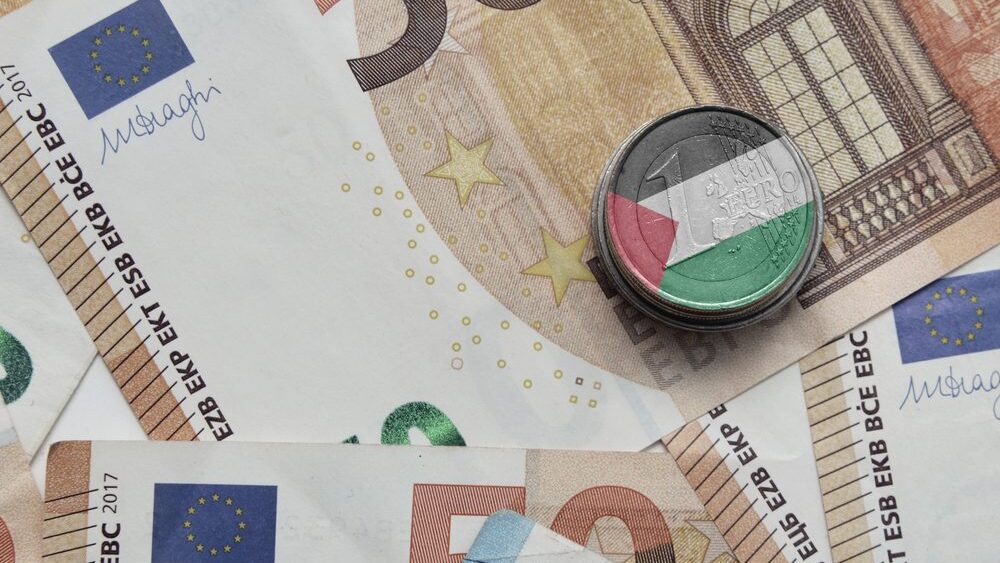
During an extraordinary meeting on Tuesday, foreign ministers of EU member states decided that financial support for the Palestinian Authority will not be interrupted because of Hamas’ attack on Israel, while also endorsing the two-state solution to the crisis and calling for any retaliation from Israel to be done in accordance with international law.
“The humanitarian situation [in Gaza] is dire, so we have to support [Palestinians] more, not less,” the EU’s High Representative for Foreign Affairs, Josep Borrell said during a press conference after meeting on Tuesday evening, October 10th.
The overwhelming majority [of EU countries], with maybe two or three exceptions, decided that the cooperation with the Palestinian Authority has to continue. The funding has to continue. The payments must not be interrupted, especially in this critical moment.
As to who the “two or three” outliers were during the meeting, Borrell refused to elaborate, but a few Central European member states come to mind.
There must be a clear distinction between Hamas and the Palestinian Authority (PA), Borrell explained, saying that the EU will continue working with the PA just as before Saturday’s attacks. “Collective punishment of all Palestinians would be unfair and unproductive,” Borrell said. “It would be against our interests, and against the interests of peace,” he added, saying that it would also risk the EU’s good relationship with Arab countries.
We might note that the Palestinian Authority is not beyond criticism either and it’s not always easy to draw a “clear distinction” between them and Hamas. On Tuesday, for instance, the deputy head of the PA’s mission to the EU directly refused to condemn the violent actions of Hamas “until the day when there is an independent, sovereign Palestinian state.”
The PA de facto rules only the West Bank after losing Gaza to Hamas militants in 2007, but it’s still designates itself as the sole ‘State of Palestine.’ Besides, President Abbas of the PA has been refusing to hold elections ever since, which is not too democratic for a ‘state’ that has been receiving billions from the European Union over the years.
Nonetheless, the decision to not suspend the funds seems like a U-turn on the initial EU reaction to the war in Israel, as Enlargement Commissioner Olivér Várhelyi announced on Monday that Brussels was ready to suspend the nearly €700 million aid that was due for Palestine this year.
The Commission, however, almost immediately backtracked on Várhelyi’s statements after several member states spoke out against the unilateral decision, saying that it should be up to the Council to decide any such measure.
“There will be a review to ensure there is no link between our support and Hamas’ terrorist activities,” Borrell said during Tuesday’s press conference, but “there’s not going to be any structural delay of the payments … no suspension of funds.”
In their joint statement, the foreign ministers also condemned the terrorist attacks, and called for the release of hostages, the opening of humanitarian corridors out of Gaza, and the unblocking of essential supplies after Israel restricted the flow of water, electricity, and food into the area.
“Cutting electricity and food for the civilian population is not according to international law,” Borrell stated. “All ministers insisted that Israel’s retaliation—within its right to self-defense—must be done in accordance with international humanitarian law.”
As for the long-term implications of the conflict, the EU ministers called for a wide-scale revival of the Middle East Peace Process with the inclusion of the entire international community.
“This could be an awakening moment in order to re-engage with the problem of Palestine and Israel,” Borrell said. “To make peace between the Arab countries and Israel is good and necessary, but peace also has to be done with the Palestinians. Otherwise, this cycle of violence will restart again.”
The EU doesn’t have any concrete plans yet, the top diplomat noted, but the foreign ministers were able to agree on the general direction: working toward achieving some form of the two-state solution—meaning to establish an independent Palestinian statehood.
“We have to work and make [the two-state solution] viable, although 30 years after the Camp David agreements, it looks farther away than ever,” Borrell admitted, but called for the international community to back these efforts once more. “These days are sad, but they may be an occasion to put the quest for peace on the table again.”
